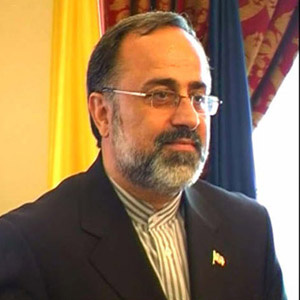Lest the Enemy Deceives Us

WikiLeaks documents reveal Saudi King Abdullah’s hostile position toward Iran, the country he has dubbed a “snake” and whose head he has asked the Americans to cut off. The question—also posed by the Arab daily al-Quds al-Arabi—is, who exactly is supposed to cut off the head of this snake? The US, Israel or both? Arab states, particularly the smaller ones, are clearly concerned if the P5+1 and Iran seal an agreement in their nuclear talks.
Forged or genuine, the WikiLeaks documents may have been published with certain clear intentions. Those who masterminded the WikiLeaks campaign are trying to influence regional circumstances in Middle East and implement their policies. Washington is currently troubled with a lingering economic crisis and the Democrats are seeking a way to get mitigate their troubles. Creating such media tsunamis might help them ride out the storm, control the crisis, and establish a new version of unilateralism in global relations.
The US is certainly in opposition to countries that oppose its global hegemony. And Iran is definitely one of these countries—perhaps the most important and stubborn—which foils US efforts to dominate Middle Eastern affairs. Media propaganda against the Islamic Republic of Iran is indeed powerful. Yet Iran has managed to advance both its ideological propaganda and development programs; it has successfully reconstructed the country after a devastating war with Iraq; is poised to realize its 20-year vision, and has managed to master advanced technologies through the efforts of domestic experts. Containing Iran is undoubtedly top of the agenda for the United States, and Iran’s nuclear program provides the Americans the best excuse to enforce their containment policy.
A likely scenario WikiLeaks may be following is to jeopardize Iran’s ties with the Arab countries of the region, and tackling misunderstanding at this juncture is of high importance. Despite Iran’s significant regional power, in a climate infected by mistrust potentially serious challenges are bound to arise. Diplomacy’s main function is, after all, reducing tensions. A détente campaign can foil the West’s efforts to forge a regional consensus against Tehran.
Iranian security centers should not hasten to react to the WikiLeaks documents. These documents, whatever their reverberations, need serious analysis. We should be careful not to fall into a trap set by our enemies.
* Seyyed Davoud Salehi is Iran’s former ambassador to Spain.

